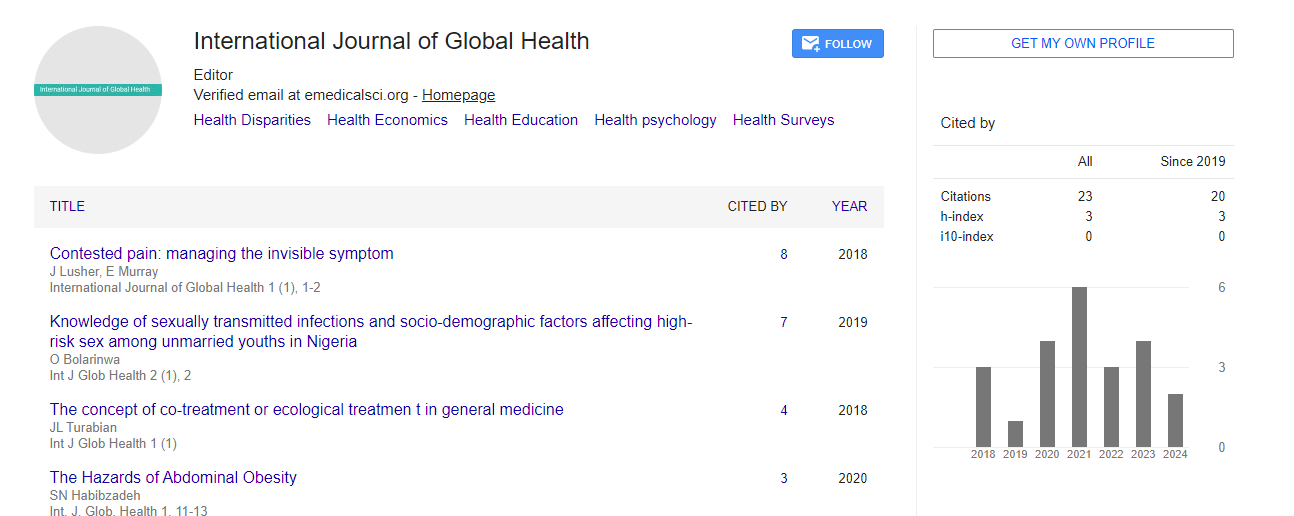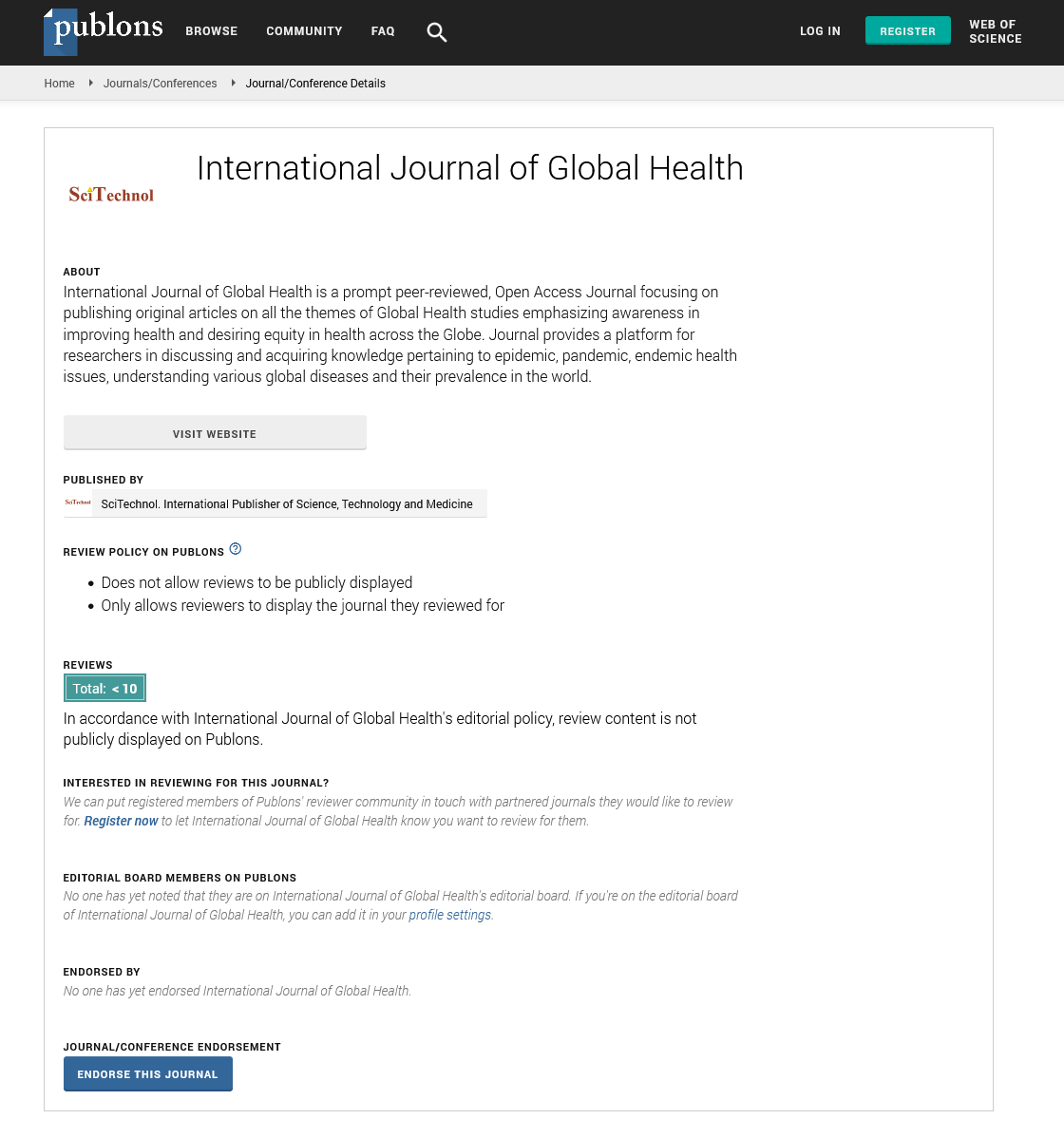Editorial, Int J Glob Health Vol: 4 Issue: 2
Liberalisation and Obesity: A Case Study of New Zealand’s Trade Objectives and Development Commitments in the South Pacific
C.Slevin*
Liberalisation and Obesity: A Case Study of New Zealand’s Trade Objectives and Development Commitments in the South Pacific
*Corresponding Author:
C.Slevin
University of Edinburgh Medical School, United Kingdom.
E-mail: selvin@gmail.com
Received Date: Mar 08, 2021; Accepted Date: Mar 15, 2021; Published Date: Mar 22, 2021
Citation: Slevin C (2021) Public Health Congress 2019 : Policy Coherence, Trade Liberalisation and Obesity: A Case Study of New Zealand’s Trade Objectives and Development Commitments in the South Pacific - Caroline Slevin - University of Edinburgh Medical School. Int J Glob Health 4:2. 128.
Keywords: Health
Policy coherence is considered essential for credible and effective policies, with its importance in global health highlighted by its inclusion in Sustainable Development Goal (SDG) 17.14. Despite pledging to support the SDGs, New Zealand had failed to implement any monitoring, analytical or reporting systems to measure policy coherence by 2016. This has implications given its leadership position in the South Pacific, which is experiencing a non-communicable disease (NCD) crisis, as it assists smaller island nations with development and imports essential goods. A literature review was conducted to investigate the significance of the relationship between trade liberalisation and obesity in the South Pacific. This was followed by a thematic analysis of New Zealand’s regional food, trade and development policies. The review found that trade liberalisation has facilitated a nutrition transition with the entry of nutritionally-inferior food products to Pacific nations, with reduced agricultural subsidies contributing to an increase in food-import dependency. The policy analysis indicates a lack of coherence exists between New Zealand’s objectives to pursue trade liberalisation and maximise export revenue with development commitments to reduce obesity in Pacific nations. The prioritisation of economic objectives underpins the failure to achieve policy coherence in the South Pacific and New Zealand appears reluctant to accept responsibility for its contribution to the region’s NCD crisis. Greater communication with island communities is needed, whilst monitoring and reporting systems must be implemented to guarantee coherence when developing future policies and to prevent a further deterioration in South Pacific NCD health outcomes. First, a desk overview changed into conducted to map and record in one vicinity Fiji’s commitments to applicable existing change agreements that have implications for Fiji’s country wide meals environment below the domain names of the INFORMAS trade tracking protocol. An excel database become evolved to file the agreements and their provisions. the second one element of the studies centred on statistics extraction. We began with identifying food import volumes into Fiji by using united states of America of foundation, with a particular awareness on a choose number of ‘healthful and dangerous’ ingredients. We additionally evolved an in-depth listing of transnational food companies currently running in Fiji. Here is increasing evidence across the world of the connection between exchange agreements (see desk 1 for definition of exchange-associated terminology), adjustments in food environments and they will increase in degrees of obesity and dietrelated non-communicable illnesses. alternate regulations which emphasize extra marketplace get right of entry to for food exports and opening of domestic markets for foreign funding have facilitated the introduction of meals environments full of processed foods, which might be regularly high in fats, salt and sugar. a scientific technique to monitoring the effect of alternate agreements on the meals deliver at us of a stage is a critical basis for growing suitable and focused interventions to enhance diets and fitness. this will permit country wide health interventions to both discover regions of challenge, and to make certain that interventions recall the change context. The observe shows that Fiji’s WTO club, alongside associated monetary and agricultural coverage adjustments have contributed to accelerated availability of each healthy and much less healthful imported ingredients. In systematically monitoring the import volume developments of these classes of meals, the take a look at highlights a boom in healthy meals inclusive of sparkling end result and veggies and whole-grain delicate cereals. The examiner additionally suggests that there was a boom in less healthy meals including fats and oils; meat; processed dairy products; strength-dense drinks; and processed and packaged ingredients. With the aid of monitoring the trends of imported meals at country stage from the attitude of alternate agreements, we are able to develop suitable and centred interventions to enhance diets and health. this would permit country wide health interventions to each perceive areas of issue, and to ensure that interventions remember the alternate context. The whole quantity of meals imports into Fiji is from 112 WTO member nations. As proven , there were high and increasing degrees of food import volumes from WTO-member international locations.
 Spanish
Spanish  Chinese
Chinese  Russian
Russian  German
German  French
French  Japanese
Japanese  Portuguese
Portuguese  Hindi
Hindi 
